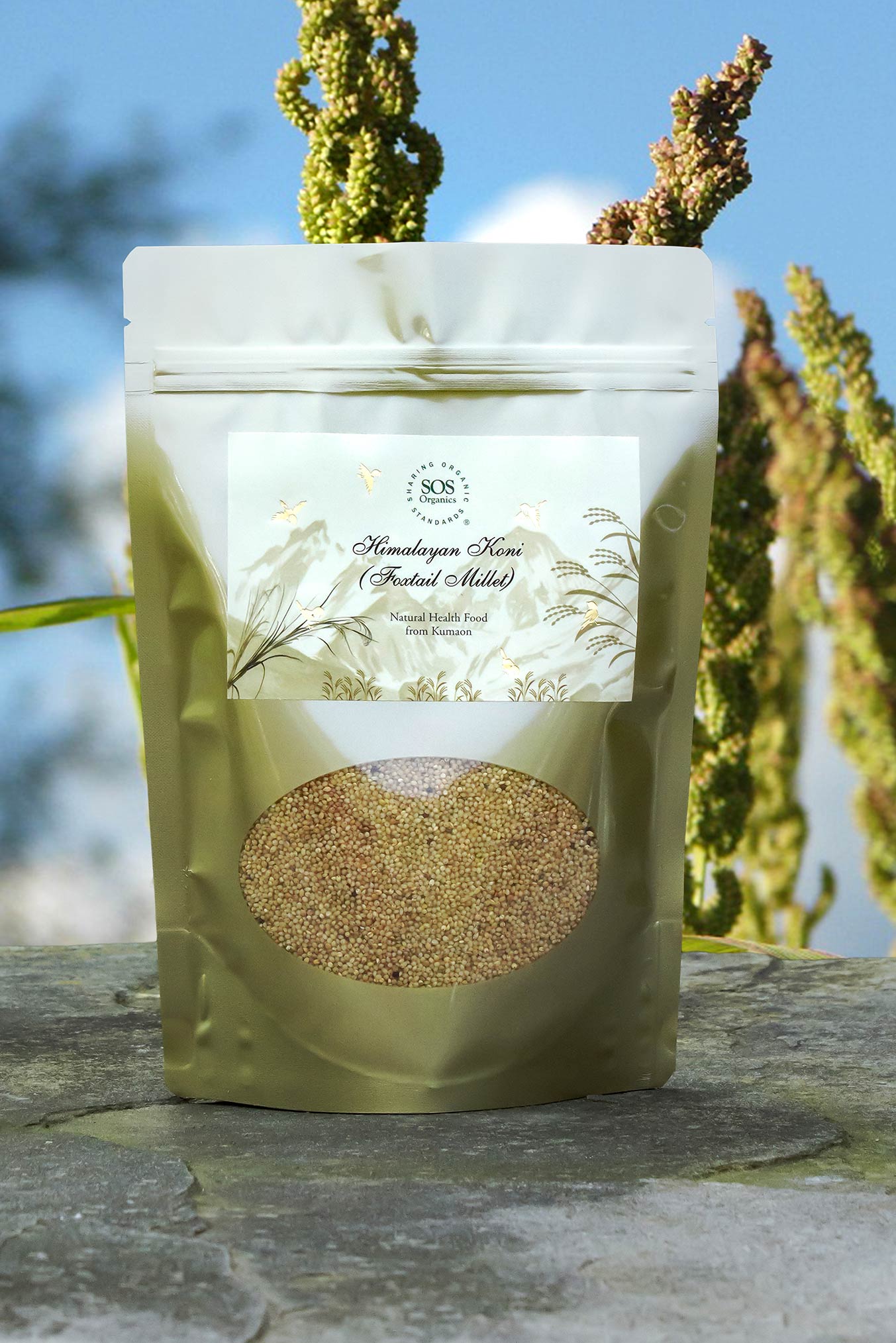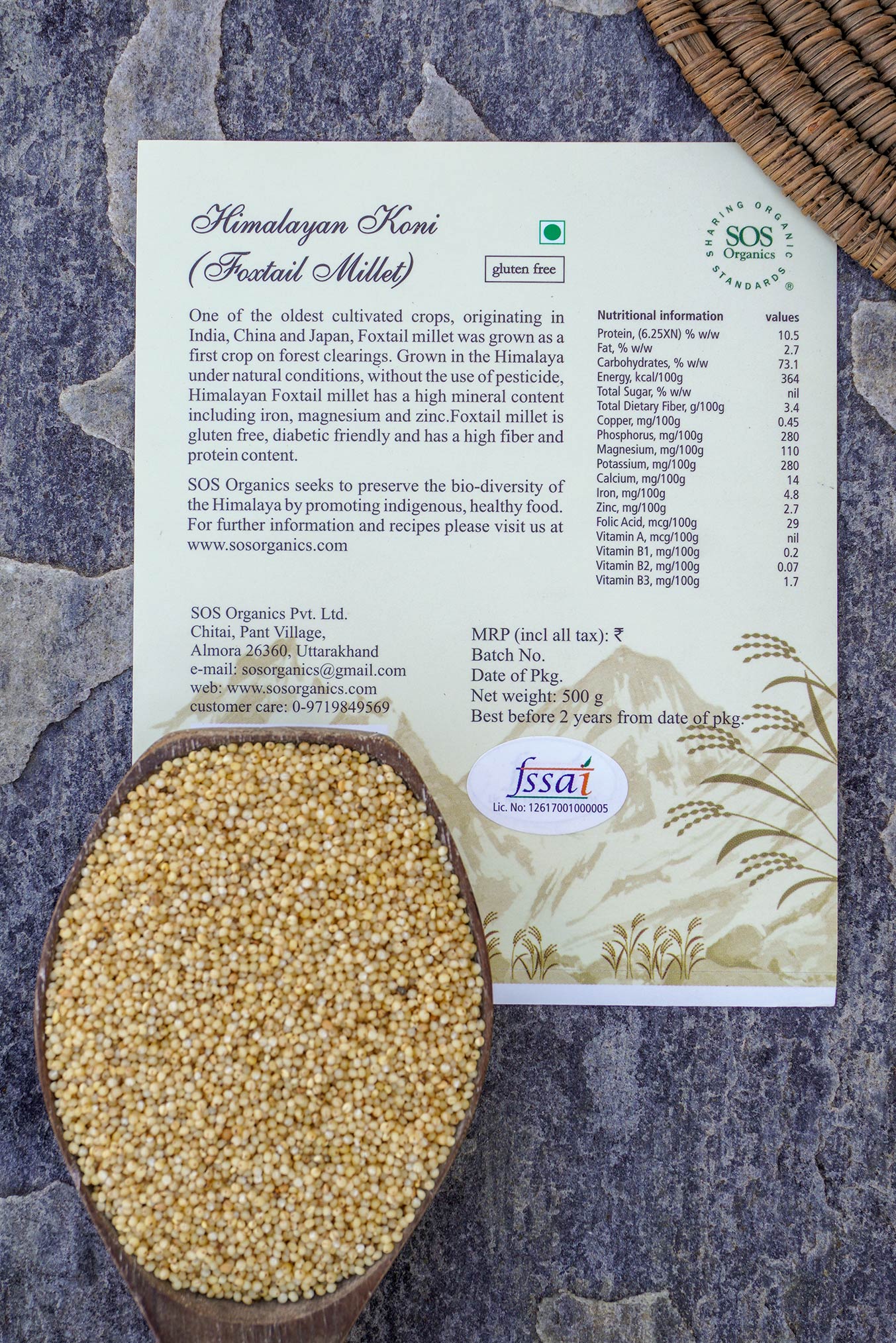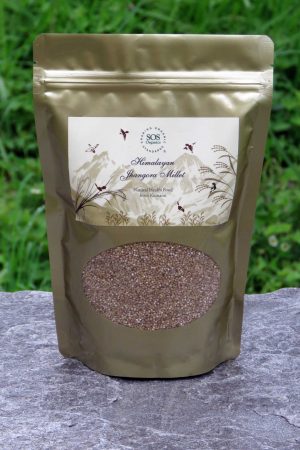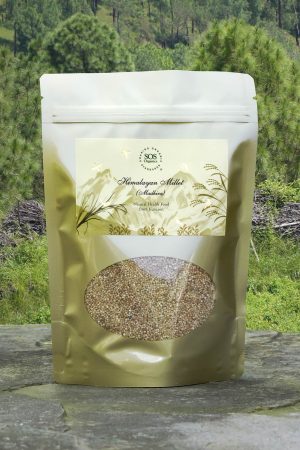Himalayan Koni (Foxtail Millet): A Nutritious and Versatile Grain
With origins dating back to ancient times in India, China, and Japan, Foxtail Millet has a rich history as one of the oldest cultivated crops. Traditionally grown in forest clearings, this versatile millet has found its way to the Himalayan region, where Himalayan Koni (Foxtail Millet) thrives naturally without pesticides. Let’s delve into the extraordinary advantages of Himalayan Koni, a nutrient-dense and gluten-free grain that caters to various dietary needs.
1. A Historical Crop with Timeless Nutritional Value: Himalayan Koni (Foxtail Millet) carries the legacy of being one of the oldest cultivated crops enjoyed by civilisations across ancient India, China, and Japan. Its long-standing presence in human diets is a testament to its timeless nutritional value.
2. Grown in Pristine Himalayan Conditions:
SOS Organics Himalayan Koni (Foxtail Millet) is grown under natural conditions in the Himalayan region, free from harmful pesticides. The pristine environment enhances the millet’s inherent nutritional content and purity.
3. Abundant in Essential Minerals:
Himalayan Koni is a treasure trove of essential minerals. With significant amounts of iron, magnesium, and zinc, this millet contributes to the body’s mineral requirements, supporting various physiological functions.
4. Gluten-Free and Diabetic-Friendly:
For individuals with gluten sensitivities or diabetes, Himalayan Koni is a safe and satisfying option. Being naturally gluten-free allows those with dietary restrictions to savour the taste of a wholesome grain without compromising health.
5. High in Fiber and Protein:
Himalayan Koni (Foxtail Millet) boasts a high fibre and protein content, making it an excellent addition to a balanced diet. Its fibre supports healthy digestion, while its protein content helps maintain muscle mass and overall body strength.
6. Versatile Culinary Uses:
With its mild flavour and versatile texture, Himalayan Koni lends itself to various culinary creations. This millet adds a unique touch to every recipe, from savoury dishes like pilafs and salads to sweet treats and baked goods.
Himalayan Koni (Foxtail Millet) is a historical crop with exceptional nutritional value. Grown naturally in the Himalayan region without pesticides, it is a source of vital minerals, gluten-free goodness, and high fibre and protein content. Embrace the nourishing wonders of Himalayan Koni and elevate your culinary journey with this versatile and healthful millet. Whether you seek a diabetic-friendly option or a nutrient-dense addition to your meals, Himalayan Koni is the answer to a well-rounded and delightful dining experience.
Sourced from organic produce and hand-sorted in Himalayan villages, all our produce is grown naturally without harmful chemicals in our effort to preserve the Himalayas’ biodiversity and sustain indigenous crops.
vegetarian, gluten-free
(net weight: 500 grams, packed in a golden resealable pouch)
Why eat Organic
Throughout history, unadulterated foods have been the foundation of the human diet. However, in the mid-20th century, chemical and factory farming became prevalent to increase crop yields. Unfortunately, these practices have resulted in significant environmental and economic imbalances, affecting the health of animals, plants, micro-organisms, soil, oceans, atmosphere, and humans. Even those with technology and wealth are not immune to the adverse effects of an unhealthy environment.
Maintaining good health has become a challenge in today’s polluted urban environment due to contaminated water, air, and food. As our urban population grows, we see the negative impacts of rapidly changing lifestyles, poor diets, and lack of exercise. When we consume polluted food, we carry that pollution in our bodies, accumulating toxins and developing diseases such as obesity, diabetes, and heart disease.
Children are particularly vulnerable to agricultural toxins, as they consume more than their size. Shockingly, the average child is exposed to four times more cancer-causing pesticides found in food than the average adult. It’s time to prioritise clean, unadulterated food and recognise the importance of a healthy environment for the well-being of all.











